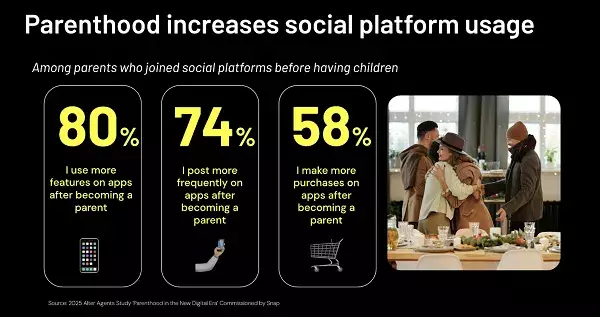Parenthood has long been perceived as a transformative life event, but its influence on digital behavior is often underestimated. Instead of simply reducing online activity, new trends suggest that becoming a parent redefines how and why individuals engage with social media. While early assumptions may point to a decline in social sharing due to time constraints, the reality is more nuanced. Parenthood often catalyzes a strategic shift: social media becomes less about personal escapism and more about fostering connections, documenting milestones, and navigating shared experiences.
Parents are no longer just consumers of content—they are active contributors to a digital ecosystem that supports their evolving needs. The surge in photo sharing, participation in parent groups, and online shopping reflects this recalibration. This behavior underscores a pivotal insight: social media, rather than being sidelined, becomes a vital tool for modern parents to maintain social bonds, gather information, and make informed decisions. The digital landscape offers an accessible platform to bridge the gap between busy schedules and the desire for community and shared understanding.
Adapting to a New Social Reality: The Role of Data and Timing
Recent research from Snapchat, in collaboration with Havas Media Network, sheds light on these shifting dynamics with compelling clarity. The study, encompassing the perspectives of over 7,500 parents globally, uncovers that a significant majority—59%—actually increase their social media use after welcoming a child. This counters traditional narratives that assume stress and fatigue would diminish online engagement.
The timing of social media activity also reveals interesting patterns. Parents tend to turn to these platforms more during holidays, birthdays, and summer breaks—moments that serve as natural opportunities for celebration, reflection, and sharing. Strikingly, Black Friday emerges as a critical period, with the greatest spike in usage. This suggests that parents view social media not just as a personal outlet but as a strategic space for shopping and product discovery. The digital shopping journey has become a collective experience, where families co-navigate digital aisles, influenced heavily by social cues and peer recommendations.
The influence of social media on purchasing decisions, especially within family units, indicates a culture of shared discovery. Over 80% of parents shop online with their children, and a substantial portion report being swayed by products their teens see and share on these platforms. This intergenerational exchange transforms social media from mere entertainment into a powerful marketplace, blurring the lines between social connection and commercial activity.
Implications for Marketers and Future Trends
Understanding this behavioral evolution opens new avenues for marketers aiming to connect authentically with parent audiences. The data suggests that strategic ad placement during after-school hours, weekends, and key shopping seasons like Black Friday can optimize engagement. Moreover, campaigns that tap into this co-discovery mentality—highlighting shared experiences, family-friendly products, and collaborative shopping—can resonate more deeply.
Brands that recognize the dual role social media plays in both community-building and commerce will find themselves better positioned to foster meaningful connections. Personalized content that reflects the realities of parenting, coupled with targeted advertising during moments of shared parent-child activity, can significantly amplify reach and influence. As digital habits continue to evolve, embracing this new paradigm—where parents use social media as a tool for both connection and consumer education—will be essential for future success.
In a digital era where parenthood and social media intersect more intricately than ever before, the key lies in understanding and adapting to these new patterns. Parenthood doesn’t signal a retreat from social spaces; instead, it amplifies the importance of these platforms as vital, dynamic arenas for connection, discovery, and influence. Embracing this shift offers a strategic advantage, not just in marketing, but in fostering genuine, empathetic engagement in the modern family-centric digital landscape.

